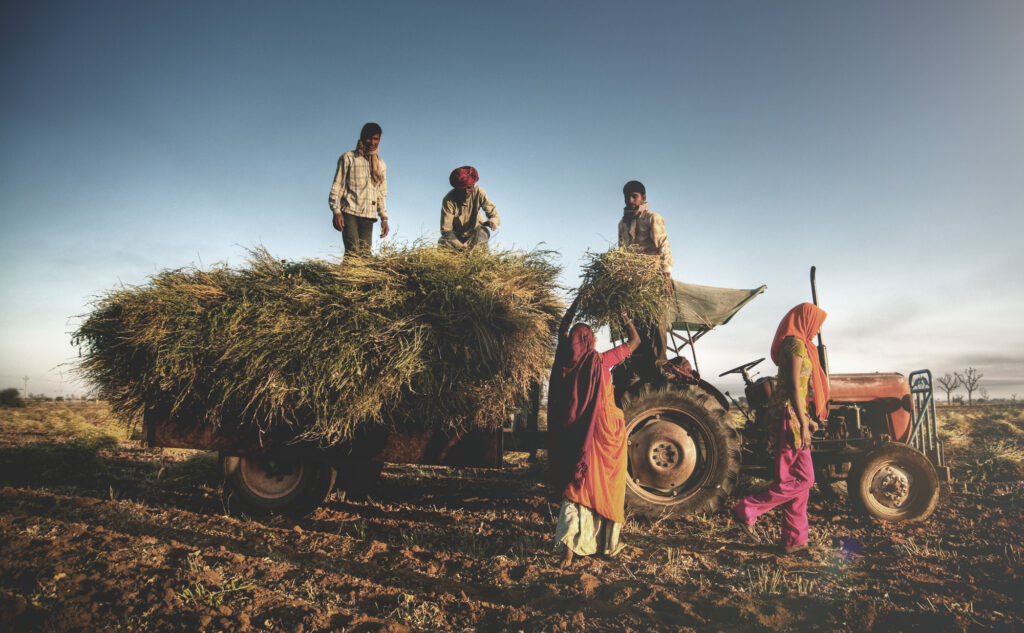An article published in the Journal of Ethical Human Psychology and Psychiatry asks why the psy-disciplines (psychology and psychiatry) in India remain relatively silent on the epidemic of farmer suicides. The article, written by Sudarshan R. Kottai, a philosopher at Christ University in Bengaluru, questions why, as Indian farmer protests grow increasingly deadly, psychologists and psychiatrists in the country appear unwilling to address the social, political, and economic factors that contribute to the mental and emotional suffering of this population.
“Compassionate common sense has driven people across the globe, cutting across social divides to speak against state-sponsored human rights violations on protesting farmers. Yet, we witnessed deathly silence on the part of mainstream mental health systems/professionals even after many farmers lost their lives at the protest sites,” Kottai writes.
“What stops the mental health systems from engaging with the political contexts that exacerbate distress? Why are mental health professionals reluctant to ‘diagnose’ the state that institutes inhuman and degrading treatment on farmers? Why is it more challenging for mental health professionals to offer full-throated support to end arbitrary neoliberal capitalist policies with deleterious effects on farmers’ psychological health? Why are mental health professions not among the most vocal in leading the call for human rights protection?”
 Indian farmers have been protesting the privatization and individuation of farming in India since the early-90’s when pro-corporate laws and neoliberal policies from the Global North began to make their way to the Global South. By 1991, government officials had grown apathetic to traditional modes of agriculture and began to increasingly favor large and expensive modes of production. The switch to these farming methods has impacted the farmers, transforming work, life, and identity.
Indian farmers have been protesting the privatization and individuation of farming in India since the early-90’s when pro-corporate laws and neoliberal policies from the Global North began to make their way to the Global South. By 1991, government officials had grown apathetic to traditional modes of agriculture and began to increasingly favor large and expensive modes of production. The switch to these farming methods has impacted the farmers, transforming work, life, and identity.
As ‘big-farm-a’ grows larger, so does the amount of money it costs to keep up for small family farmers. As their debt increases, so does their likelihood of suicide. Similar trends have been found in American medical debt holders and American farmers in the Midwest.
In response, farmers have begun to protest state policies. However, the protest movements have often met brutal opposition. As a result, over 150 farmers have died camping on the Delhi borders, and more than 50 have died by suicide protesting the government to repeal laws. Often, these suicides are medicalized rather than seen as a result of oppression. Kottai, in his article, highlights the loss of life:
“A majority of those committing suicide were small farmers who had been adversely affected by the introduction of neo-liberal economic policies during the early 1990s. Some of these had over-extended themselves financially. Not only had their agricultural income declined as a result of crop losses, but their costs of cultivation and indebtedness to informal agencies had increased.”
Despite the protest movements, the psy-disciplines remain silent. After surveying India’s psychiatry and psychology journals, Kottai found a total of eight papers published in the Indian Journal of Psychiatry on Indian farmer suicides and death. Most of which, he points out, urge a reduction to the access of means and an increase the access to psychiatry, psychology, and medication.
However, Kottai is wary of increasing access to the psy disciplines as they have also been affected by the Global North’s tendency to locate the issue within the individual rather than the system.
“Decontextualization of suffering is rampant in mental health disciplines that perform ‘scientific mimicry,’” Kottai writes. “In other words, methodological individualism, which focuses on individual characteristics as causes of social phenomena, reifies mental distress stemming from oppression by the state as individual mental disorders.”
He argues that farmer suicides ought to be seen as a social justice issue, not as an individual issue that can be solved with an individual solution such as medication or therapy. Instead, Kottai sees the deaths as a systemic issue that needs to be solved at the systems level.
However, Kottai does note that there is still some efficacy for the psy disciplines beyond naming neoliberalism as the core issue for farmers. He writes that Indian psychologists and psychiatrists can play a role by “bearing witness” to the stories of injustice is crucial to the overall wellbeing of the farmers as they navigate the system. It is through bearing witness and the giving of language to experience that the psy disciplines can become more rights-based and emancipatory, rather than complicit and complacent.
“Only a rich tradition of value-based, emancipatory thinking in mental health theory and praxis can bring mental health professionals, farmers, and agricultural laborers to forge solidarities in times of dispossession and crises,” Kottai writes.
“Psy disciplines cannot remain apolitical in their quest to be ‘scientific,’ for human rights/social justice and mental health stand for one another, highlighting the crucial role of resistance, empowerment, collective understanding and activism in realizing mental health for all.”
****
Kottai, S. (2021). Farmers’ Protests, Death by Suicides, and Mental Health Systems in India: Critical Questions. Ethical Human Psychology and Psychiatry, 23(2), 70-88. (Link)















I would observe that the profession in general is not willing to look at context with respect to Mental Health. Even in the comments section of this publication, there is no interest in externalities with respect to mental health, as comments about what a Health Community looks like are ignored.
What is a healthy community, and how do we foster that community? Please answer that question.
Report comment
First thing we WOULD DO, if we really wanted a healthy society, would be to toss psychiatry on the trash-heap of history….
Report comment
The question should not be “what is a healthy community?” The questions should also not center either around “social justice” or the “psychiatric/medical model.” The question needs to be how to do we not interfere with individuals in doing what they are meant to do, what they are enjoy doing and what they are gifted to do? What is “healthy” can change over time, like the prevailing winds of the day. We need more constancy, consistency, and stability over time. We need to stop playing games with people’s lives believing that technology is the answer. We need to get back to our roots and forget all this “mumbo-jumbo.” Thank you.
Report comment
Yeah, I AGREE, – what “rebel” said…..
Report comment
Have you viewed Dr. Vasant Lad, The Doctor from India, His book, Secrets of the Pulse… Ayurvedic medicine as practiced ?
Report comment